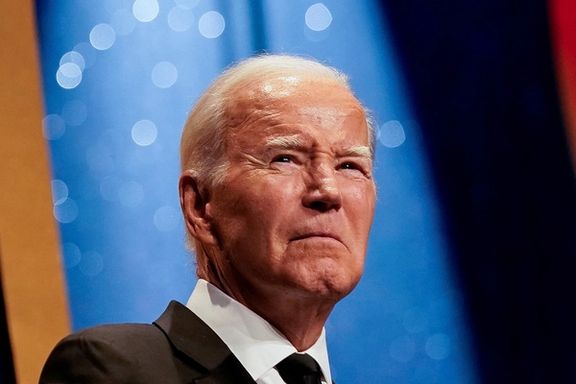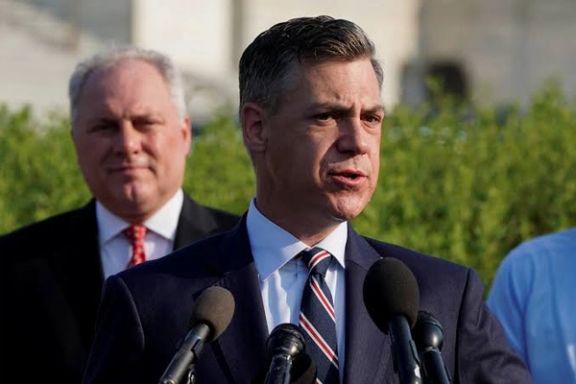Shock And Outrage In Washington After Exposure Of Iran’s Influence Operation

An investigative report documenting an Iranian-backed influence operation in the United States has enraged lawmakers and others across the country.

An investigative report documenting an Iranian-backed influence operation in the United States has enraged lawmakers and others across the country.
The report, published in two versions simultaneously by Iran International and Semafor on Tuesday, depicts a close yet lopsided relationship between the Islamic Republic and three associates of Robert Malley, Biden’s special envoy on Iran, who’s been suspended and is under investigation by the FBI for his handling of classified documents.
Within hours of the report’s publication, several prominent members of the Congress had weighed in on the subject.
Ted Cruz, member of the Senate Foreign Relations Committee, called the revelations ‘indescribably troubling’ and asked for a “halt in secret Iran negotiations.”
“Americans have rightly been asking why the current administration is so friendly with the Iranian regime,” he said in a press release, “and why Biden administration officials have so single-mindedly enabled Iranian nuclear progress and terrorism. These reports and emails suggest a vast Iranian influence operation that goes to the very top of the administration.”

Jim Banks, the Republican congressman whose Iran-related MAHSA Act passed the House earlier this month, reposted the report on X: “When Republicans warned that the Biden admin’s desperate attempt to revive Obama’s failed nuclear deal was a gift for the Iranian regime we weren’t exaggerating…”
A series of emails by Iranian diplomats cited in the report reveal close cooperation and coordination between IR Foreign Ministry officials and individuals of Iranian origin who seem more than willing to be the regime’s eyes, ears and mouth on the international stage.
Senator Lindsey Graham also expressed his concern. "If the allegations in this story are remotely accurate, it would be stunning on so many levels."
Republican Senator Tom Cotton wrote on X, "Senior officials in both the Biden and Obama administrations were likely party to an Iranian-backed PR campaign."

“As an Iranian, based on my national and patriotic duty, I have not hesitated to help you in any way,” reads an email from Ali Vaez of the Crisis Group to Javad Zarif, the then Foreign Minister of the Islamic Republic, “from proposing to Your Excellency a public campaign against the notion of breakout, to assisting your team in preparing reports on practical needs of Iran.”
Vaez challenged on Tuesday the evidence that Iran’s Foreign Ministry oversaw the initiative.
“The Iranian correspondence on the IEI is a one-sided and self-congratulatory load of nonsense,” he said in a long thread on X, formerly called Twitter. He added that he shared a draft of one of his opinion pieces with Iranian officials before publication, as a courtesy. He also said Tehran had accused him of being too harsh to their position.
Another ‘expert’, Ariane Tabatabaei, reports on two invitations from Israel and Saudi Arabia and seeks advice from IR Foreign Ministry officials whether she should accept those.
Tabatabaei was another close associate of Malley, who served on his Iran nuclear negotiating team in 2021. She is currently the chief of staff for the Assistant Secretary of Defense for Special Operations, a position that requires a US government security clearance.
Sen. Cruz referred to Tabatabai without mentioning her name, calling for those linked to these emails to “have their security clearances pulled until these allegations are fully resolved and accountability is imposed.”
Perhaps more worrying for Tabatabaei, the chairmen of the House Armed Services Committee and House Subcommittee on Intelligence and Special Operations, jointly wrote Defense Secretary Lloyd Austin, asking for her security clearance to be reviewed.
“Was the Department aware of Ms. Tabatabai’s participation in Iranian government-sponsored influence networks, such as the Iran Experts Initiative?” Reps. Mike Rogers and Jack Bergman asked. They gave the Pentagon one week to answer this and six other questions.
Another question reads: “Are you aware of any instances of Ms. Tabatabai communicating with the Iranian regime, either in her official capacity or unofficially? Are you aware of any communications Ms. Tabatabai had with the Iranian regime prior to her employment?”
As a high-ranking official in the Pentagon, Tabatabai’s case seems to be the most serious of all names mentioned in the exposé. The letter to the Defense Secretary all but guarantees more headache for the Biden administration –already under pressure to provide clarity on Robert Mally’s suspension.
President Biden’s Iran policy has been heavily criticized in recent months, especially after he agreed to unblock $6 billion of Iran’s frozen oil revenues to bring back five Iranian-Americans held hostage by the Islamic Republic.
Many have berated his administration’s approach towards the regime in Iran, which now seems more emboldened than ever.
The revelations seem to have shed some light on the hows and whys of the decision-making in the Biden’s administration. The whole saga is “unbelievable. And yet, totally believable,” as Ilan Berman, Senior VP of the American Foreign Policy Council, says.
The revelations appear to provide insight into the decision-making process within the Biden administration that has led to so much criticism. The entire saga is described as "unbelievable, yet entirely plausible," according to Ilan Berman, Senior VP of the American Foreign Policy Council.